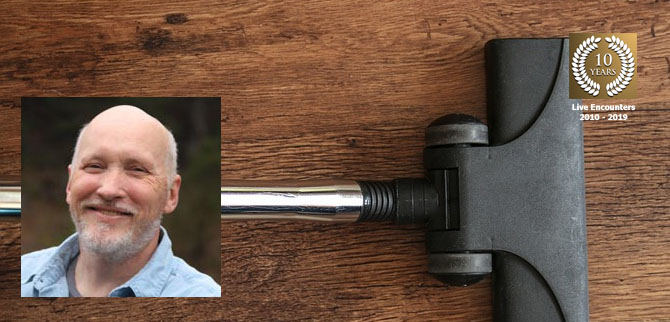Poems by Stephen Haven
Stephen Haven is the author of The Last Sacred Place in North America (2012), selected by T.R. Hummer as winner of the New American Prize. He has published two previous collections of poetry, Dust and Bread (Turning Point, 2008), for which he was named 2009 Ohio Poet of the Year, and The Long Silence of the Mohawk Carpet Smokestacks (University of New Mexico/West End Press, 2004). He is also author of the memoir The River Lock: One Boy’s Life Along the Mohawk (Syracuse University Press, 2008). www.amazon.com/stephenhaven
Haven spent two years as a Fulbright Senior Lecturer in American Poetry at universities in Beijing. He has received residency fellowships at Yaddo, MacDowell, The Provincetown Fine Arts Work Center, and at the Djerassi Foundation, and five Individual Excellence Awards in Poetry from the Ohio Arts Council. He has twice taught as a writer in residence at the Chautauqua Institute and his poems have appeared in The Southern Review, American Poetry Review, Parnassus, Blackbird, Literary Imagination, Crazyhorse, Guernica, Salmagundi, The European Journal of International Law, and in many other venues. His fourth collection of poems, The Flight from Meaning, was one of eleven finalists for the 2018 International Beverly Prize, awarded by London’s Eyewear Publishing. He is Professor of Creative Writing at Lesley University, where he teaches in the Humanities Division and in the MFA in Creative Writing Program.
Vacuum
From the hindsight of a flea, this dark mastodon snuffs in one appendage the cracker crumbs of the over-stuffed couch. But it is mainly from the hover-craft of its flat head that small things begin to tremble, then ascend—the way, in some vacuous novel, alien lights might vaporize into the stratosphere of unimaginably tangled worlds. Hair ground into the soft, synthetic knit of the under life of the human foot, cartilage clipped from toe and finger tips, live arthropods and the dried husks of their dead, the flurry of molting skin, fluff devils, matted fur, wild seeds, mud the dog tracked in: all lift to the vortex of its spun, stiff brush and deep, industrial suck. Then, when a man or a woman’s touch has quieted it, the promise of a certain absence still gestates in our closets. It is, nonetheless, the action of skimming along carpets that holds its main interest: it spits back paperclips and thumb tacks. Otherwise it seems, on some diminutive level, omnivorous, its digestive track attached to the spine of its back. If we tug its umbilical cord all the way back to the point of origin (the double slit of the wall’s orifice), the spark that powers its ability to lift things absent from our lives flies to the bowels of the substrata’s black fossils, to the atom’s bulge. It holds its breath for weeks, then its ripe belly seems about to break: When we touch the button marked “easy open” or “release,” one last puff of dust exiles up.
Black Friday
I lit the doomed colony
Of a candelabra on the altar
The black cassock of all history
The stupendous monotony of mystery
Singing on its knees
In minor thirds only
Even the hooded cross
A falcon in the dark
Through it all the light dripped in:
Bent taper, brass lip,
Lick of one flame
Wick to wick
Housesitting Houston
When the dog moved out the fleas lit in.
We were right on top of them. Before the jokes
Of how many Yankees the house might turn up, skinned,
We cracked their Lilliputian shells. They croaked
Between our fingers, uncut pincers cured
The lusty leap of a few fat stragglers
Hanging around the kitchen sink, or
We snapped them in a water glass, forever
Certain the tap alone was no solution
Without the human cinch of their pinched backs.
When we moved the touch of their ghostly volition
Jolted in a nightly-scratch. We’d ditch the sack,
Flick the switch, scour for the lone stowaway,
Your blood prick in me, gnaw of each stray city.
© Stephen Haven


